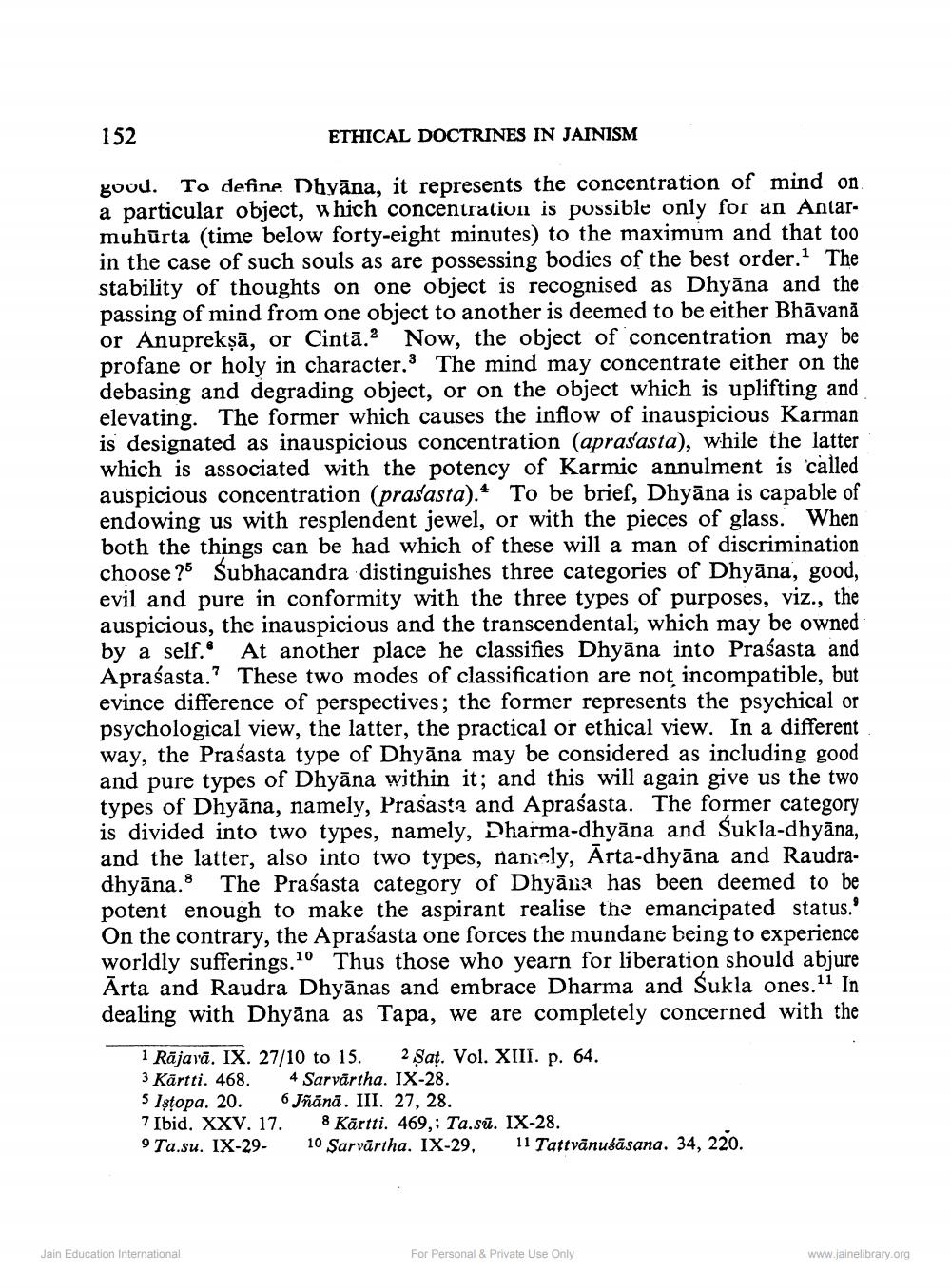________________
152
ETHICAL DOCTRINES IN JAINISM
good. To define Dhyāna, it represents the concentration of mind on a particular object, which concentration is possible only for an Antarmuhūrta (time below forty-eight minutes to the maximum and that too in the case of such souls as are possessing bodies of the best order. The stability of thoughts on one object is recognised as Dhyāna and the passing of mind from one object to another is deemed to be either Bhāvanā or Anupreksā, or Cintā. Now, the object of concentration may be profane or holy in character. The mind may concentrate either on the debasing and degrading object, or on the object which is uplifting and elevating. The former which causes the inflow of inauspicious Karman is designated as inauspicious concentration (aprasasta), while the latter which is associated with the potency of Karmic annulment is called auspicious concentration (prasasta). To be brief, Dhyāna is capable of endowing us with resplendent jewel, or with the pieces of glass. When both the things can be had which of these will a man of discrimination choose ?5 Subhacandra distinguishes three categories of Dhyāna, good, evil and pure in conformity with the three types of purposes, viz., the auspicious, the inauspicious and the transcendental, which may be owned by a self. At another place he classifies Dhyāna into Praśasta and Aprasasta.? These two modes of classification are not incompatible, but evince difference of perspectives; the former represents the psychical or psychological view, the latter, the practical or ethical view. In a different way, the Praśasta type of Dhyāna may be considered as including good and pure types of Dhyāna within it; and this will again give us the two types of Dhyāna, namely, Prasasta and Apraśasta. The former category is divided into two types, namely, Dharma-dhyāna and Sukla-dhyāna, and the latter, also into two types, naniely, Arta-dhyāna and Raudradhyāna.8 The Praśasta category of Dhyāna has been deemed to be potent enough to make the aspirant realise the emancipated status." On the contrary, the Apraśasta one forces the mundane being to experience worldly sufferings. 10 Thus those who yearn for liberation should abjure Ārta and Raudra Dhyānas and embrace Dharma and Sukla ones. 11 In dealing with Dhyāna as Tapa, we are completely concerned with the
1 Räjava. IX. 27/10 to 15. 2 $ať. Vol. XIII. p. 64. 3 Kārtti. 468. 4 Sarvärtha. IX-28. 5 Istopa. 20. 6 Jñānā. III, 27, 28. 7 Ibid. XXV. 17. 8 Kārtti. 469,: Ta.sū. IX-28. 9 Ta.su. IX-29- 10 Şarvārtha, IX-29, 11 Tattvānusāsana. 34, 220.
Jain Education International
For Personal & Private Use Only
www.jainelibrary.org




